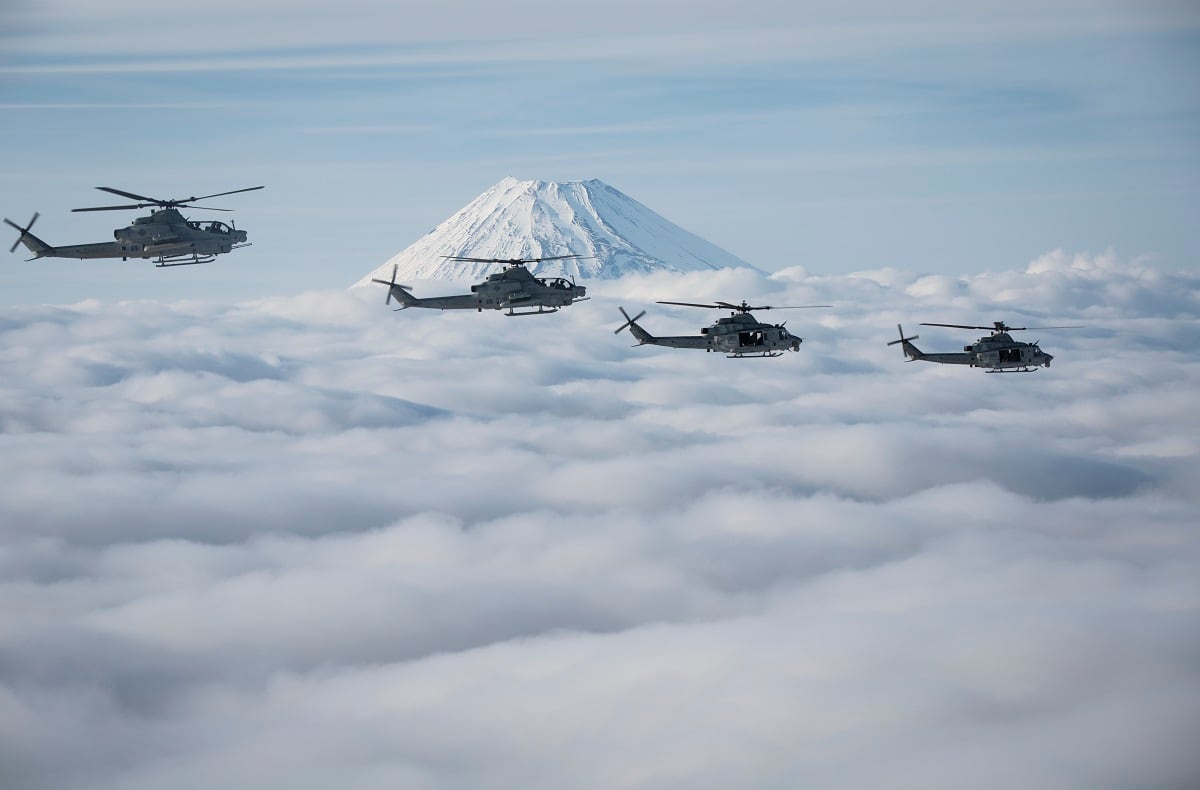The Corps is dishing out big bucks targeting junior officer tactical aviators that will net some pilots more than $200,000 in cash.
The large pile of dough also comes with options allowing pilots to choose between two-, four-, or six-year contracts, giving those with families a little added flexibility.
“It sends a signal to the guys and gals [that] this is a choice, you have a choice,” Lt. Gen. Michael Rocco, deputy commandant for manpower and reserve affairs, told reporters at a media roundtable on Friday. “We understand that everyone’s circumstances are going to be different.”
And unlike last year’s aviation bonuses — which targeted pilots flying the Corps’ next-generation aircraft, including the F-35 and MV-22 and the legacy F/A-18 Hornets — this year everyone’s getting something.
It’s a move the Corps hopes will help provide a long-term outlook on the number of actively flying aviators and slow the bleed of Marine pilots enticed by fat paychecks and bonuses from commercial airlines.
The Marines “looked at the pilot inventory that actually goes and flies aircraft, and that’s the captains and the majors in the squadron,” Rocco said.
The bonuses are broken down into two categories and targets officers with less than 14 years of commissioned service.
The first category lumps in most of the fixed-wing and tiltrotor community: AV-8B Harrier, F-35, F/A-18, MV-22 and KC-130 pilots.
Pilots in these fields are afforded contract options of 72, 48 or 24 months.
Pilots with less than 11 years of commissioned service have the option of a 72-month contract for a whopping $210,000, or $35,000 a year.
If you have commitment issues, there’s a 48-month option that will net you $120,000, or $30,000 a year.
Aviators with less than 13 but more than 11 years of commissioned service have the option of a 48-month contract worth $120,000, and those under 14 years of commissioned service can pick a 24-month option at $60,000.
These bonuses are doled out at $30,000 a year.
Those brave, eligible pilots who just love the Corps so much and want to sign that six-year contract have the option of a lump sum of $178,500.

The second category primarily encompasses the rotary-wing field: UH-1, AH-1 and CH-53 pilots and F/A-18 weapons systems officer.
Pilots from these fields with less than 13 years of commissioned service have the option of a 48-month contract worth $80,000, and those with between 13 and 14 years can pick a 24-month option at $40,000. These bonuses are dished out annually at $20,000 a pop.
And there’s more.
If a pilot took a fiscal 2018 bonus, that person is still eligible for the new pot of money. Those pilots need to apply one month prior to their one-year anniversary, and the new bonus money will take effect on the one-year anniversary of the FY18 contract.
The Corps, much like the Air Force, has been faced with a pilot shortage, partially because of competition with commercial airlines and the other services. The Corps was also left with fewer company-grade officers at the squadrons when it shrank from just over 200,000 to 182,000 Marines.
Whether the bonuses will help plug the gap and keep qualified pilots flying the Corps’ tactical aircraft is unknown.
Corps officials argue that bonuses have had some success in the past, but there are many other reasons why Marine pilots leave the service — to include insufficient flight time or family reasons.
“The bonuses serve one purpose, it’s to influence a decision,” Col. Gaines Ward, the plans officer with manpower and reserve affairs, said during the media discussion.
And the new incentive pay targets those Marines at a strategic point in their careers— the 10-year mark that Corps officials say is a critical retention point for fixed-wing pilots.
Marine officials realize they can’t compete with the buying power commercial airlines bring to the negotiating table.
“The airlines … they’ve become more aggressive in going after military pilots in paying bonuses up front,” Rocco said.
But at the end of the day, “Marines like being Marines,” he added.
Shawn Snow is the senior reporter for Marine Corps Times and a Marine Corps veteran.





